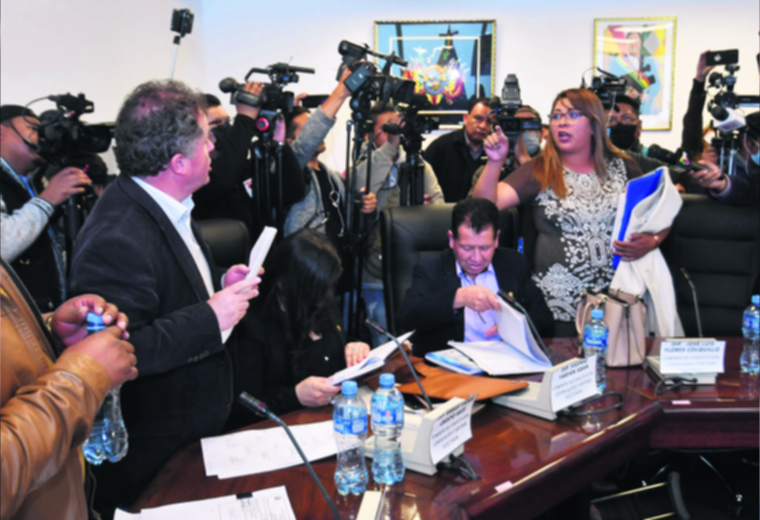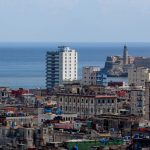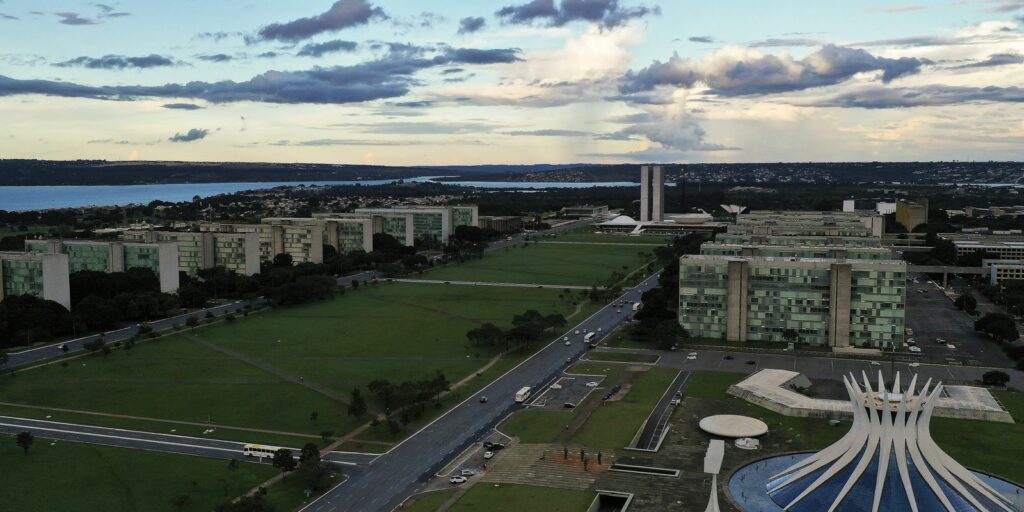April 5, 2023, 4:00 AM
April 5, 2023, 4:00 AM
The National Executive sent in March two bills that seek to create seven crimes, make repeals and modifications to 17 articles of the Penal Code to aggravate the penalties or improve the wording. Both projects are under treatment in their respective committees of the Chamber of Deputies. The opposition warned that these regulations would be an attempt to “criminalize” the population, since some crimes can be subject to multiple interpretations. The MAS affirmed that the Government seeks to comply with its international commitments.
Bill 280 of “strengthening the fight against the legitimization of illegal profits” does not include new crimes, but modifies at least six articles of the Penal Code. The norm will be discussed in the Constitution Commission that yesterday postponed the “explanation” of the norm due to the absence of the designer and Minister of Justice, Iván Lima.
Article 2 of the legislative initiative modifies Article 133 on terrorism under the text “will be punished with deprivation of liberty for 20 to 25 years and confiscation of assets that are the product or instrument of crime, the person who intimidates, places or maintains the population or a sector of it in a state of alarm or collective panic, in order to subvert the constitutional order, depose the constitutionally elected government or force a national, foreign government or international organization to perform or refrain from performing any act”.
Establishes at least seven behaviors and clarifies that social mobilization with the “purpose of claiming or exercising human rights, social rights or any other constitutional right” will not be considered as terrorism. This modification caused more controversy, since it is considered by the opposition and the trade union sector as a “criminalization” of social protest.
According to the analysis of Comunidad Ciudadana, project 280 has some differences with the withdrawn regulation 218, but regulates and tries to make modifications to six crimes the same as in 2021. As an example, he cited the confiscation of resources and assets; terrorism; financing of terrorism; legitimation of illicit profits; undercover agent and controlled delivery.
“It means that everyone the contents of this project 280 have already been archived and canceled in the bill 218 as a consequence of the massive citizen rejection that has not accepted this police state that they wanted to generate”, argued deputy Carlos Arlarco, from CC.
Meanwhile, the Confederation of Trade Unions of Bolivia declared a state of emergency to evaluate the pressure measurements and requested the project file.
Yesterday there were some incidents and claims to deal with this project. The MAS argued that the approval of this project is necessary to comply with the recommendations of the Financial Action Task Force (GAFI).
The Creemos bench sent a letter to the FATF president, T. Raja Kumar, denouncing that the MAS government “seeks a continuous implementation of harassment strategies, controlly persecution with the objective of eliminating the political and civil opposition”, under the argument of complying with the recommendations of the international organization.
The legislators asked the FATF to answer when the case of Bolivia will be addressed, if in the absence of progress on the recommendations the country will enter a “black list” and, finally, if there is a consultative body within the FATF to compare the bill with the recommendations.
new crimes
Bill 305 on “compliance with international commitments in the area of human rights” was sent by President Luis Arce on March 7 and entered the Human Rights Commission for debate. The proposal iAttempts to incorporate seven new crimes into the Penal Code, as crimes against humanity; war crimes, armed aggression, extralegal, summary or arbitrary executions; hate acts; cruel, inhuman, degrading or humiliating treatment, and common disposition.
Article 3 of the draft states that the crime of crimes against humanity is incorporated into Article 138 of the Penal Code, which is the generalized or systematic attack against a population that includes death, extermination, rape, forced disappearance and other aggravating factors that are also found in the Rome Statute of which Bolivia is a party. The penalty will be 30 years in prison and it is an imprescriptible crime.
The crime of war crime establishes 23 behaviors that can be punished from 25 to 30 years in prison. It is imprescriptible. Added to this is the armed aggression that targets a person who is in a position to control political or military action, with or without a declaration of war, orders or participates in an armed attack under penalty of 30 years.
Paragraph V incorporates article 281 of the Penal Code acts of hate that punishes the person who humiliates, belittles or commits “disparagement” due to racism against Afro-Bolivians or peasant indigenous people. The penalty will be four to eight years in prison.
For Senator Centa Rek, We believe, the Government tries to “camouflage” “harmful” laws, under the pretext of compliance with human rights conventions. “It has a very perverse attitude because they raise the need to comply with these supposed international norms to generate a law that is absolutely the opposite,” he warned.
President Arce’s bill speaks of 11 modifications to a similar number of articles of the Penal Code. Proposes changes in article 138, three points of article 281, 291, 292, two points of article 308; 312 and article 321. Modifies the crimes of genocide; Human smuggling and trafficking; discrimination; dissemination and incitement to racism or discrimination; submission to slavery or similar state; torture; rape; sexual abuse; and human trafficking.
Deputy María René Álvarez pointed out that This project “charges more danger” than the anti-legitimization project because there is “ambiguity”. He is going to be jailed, persecuted and sentenced in the name of “discrimination” despite the fact that there is already a law against racism.


















